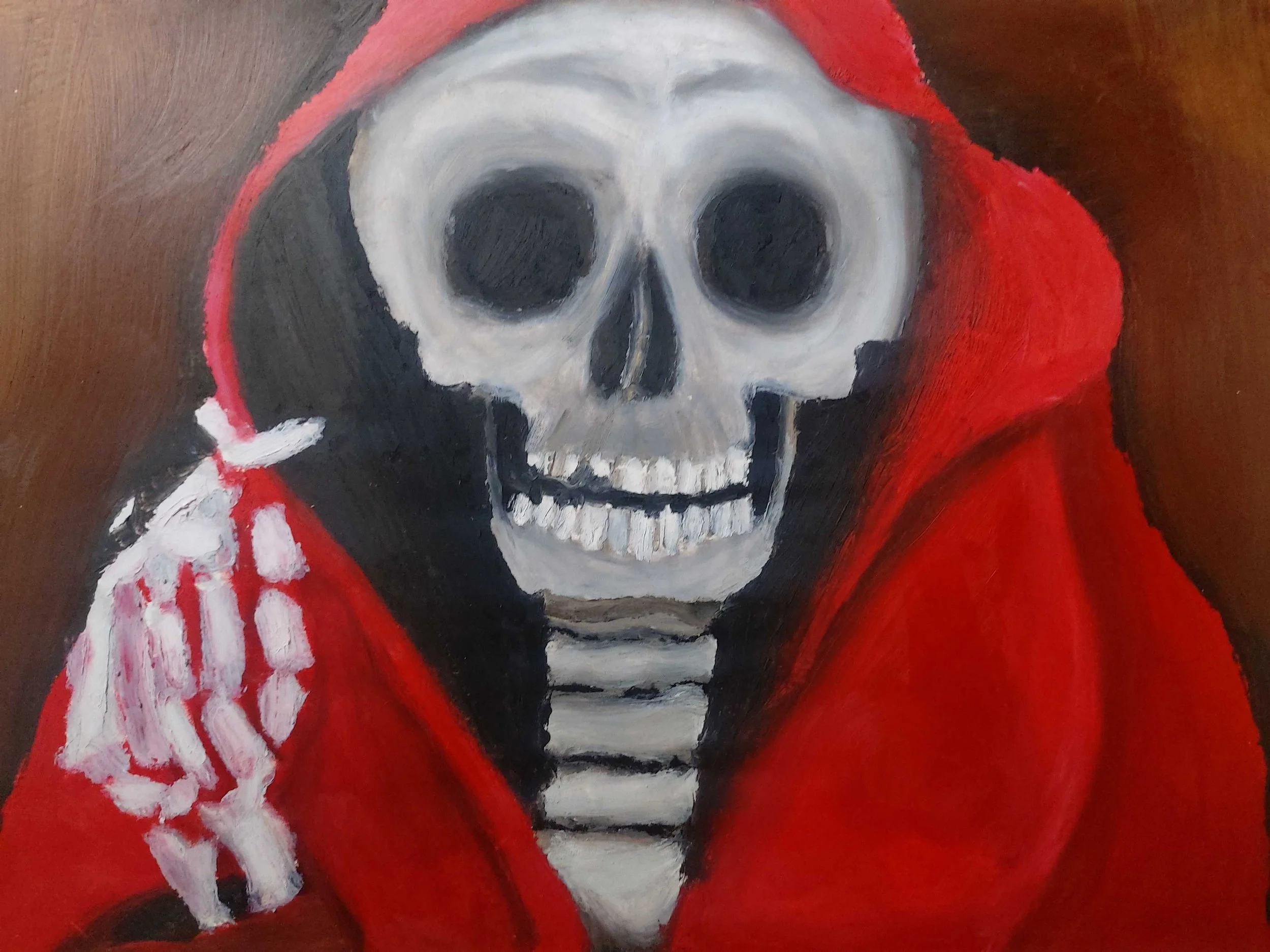Todos tus muertos: How Latin American Ska-Punk Should Change How We See Politics
Art by Will Anderton-Pithers
Good music should be electric. Good political music should shock you to the core. A sound that is not just galvanising but actively liberational: revolutionary, even. To quote Rage Against the Machine guitarist Tom Morello, 'there's got to be songs at the barricades' and, as such, almost every political movement in modern history has been soundtracked, has had its anthems to be sung in the streets. But if you take a look at state of our music now, in the face of the most dramatic man-made climate crisis the Earth has ever seen, as we see house prices rise, the economy crash, and inept government after inept government roll over one another in a mad scramble for power, there is barely a steadfastly political track to be seen. When you fight, of course, you also have to sing. I suppose the question is, why are we so silent?
Qué carajo estás haciendo con tu vida?
Qué carajo vas a hacer de vos?
As Britpop and indie rock raged on in the U.K., across the Atlantic Ocean another musical movement was gaining speed. Formed in 1985 in the sprawling megalopolis of Buenos Aires, just two years after the fall of Jorge Rafael Videla’s military dictatorship, Todos Tus Muertos rose up through the Argentine underground scene to become a spearhead of ‘el rock nacional’ of the ‘90s, its sound roaring from hardcore punk to ska to incorporating reggae influences from the Caribbean throughout its initial 15-year run. Fronted by the high-voltage Fidel Nadal, with a rotating lineup generally consisting of Féliz Gutiérrez on bass, Pablo Molina on additional vocals, and the late Horacio “Gamexane” Villafañe on guitar, the band spat obscenities against the totalitarianism that surrounded them, their lyrics sometimes raw, sometimes measuredly intellectual - always angry. Early gigs consisted of enraging cops by playing on the street, grafting to snake out hand-printed flyers until finally landing shows in actual venues. Even then it was an uphill battle, as their cross-genre tastes (salsa, hardcore, roots, ragga…) baffled and alienated many of their punk fanbase, many of whom, at the first hint of radio play for their debut hit ‘Gente que no’, hailed them as ‘vendidos’, sell-outs. But when they toured with the French band Mano Negra (themselves famously melders of anything from ska-punk to flamenco to French chanson) the group entered a new era of fame and experimentation, climbing to heights an underground hardcore band can even today hardly dream of.
What the f*** are you doing with your life?
What the f*** are you gonna do with yourself?
‘Gente que no’ asks us this with no hesitation, its cumbia-esque percussion accompanying a deep vitriol at the conformist culture that surrounds it. The problem is an ontological one: what is the point of living if life just means servitude? Nadal’s lyrical outlook verges on being plain miserable, bemoaning the neverending list of those who seek to control, to homogenise, to oppress (‘hay gente que te dice que tenés que estudiar, / hay gente que te dice que tenés un problema existencial… / hay gente que no, gente que no, gente que no…’). Conformity is the enemy - an attempt on one’s life. Indeed, the band’s very name is a jab at authoritarianism, a direct confrontation of the euphemistic ‘Proceso de Reorganización Nacional’ that disappeared, tortured and murdered an estimated 30,000 people between 1976 and 1983. ‘Todos Tus Muertos’; all of your dead. Their very existence is an accusation.
There is a palpable rage that emanates from Todos Tus Muertos’s discography. And yet, if you watch any of their taped sets even way back in the early nineties, what comes across the most alongside it is joy. And they were by no means the only ones: bands ranging from all across the Americas, from Mexico’s Tijuana, No! and Los Estrambóticos to the Grammy-winning Venezuelan group Desorden Público. Perhaps the most well-known figure from this wave of ‘90s ska-punk in the U.K. would be the French-Basque singer Manu Chao (formerly of Mano Negra), whose touring group Radio Bemba Sound System - named for the radio system used by mountain Castrista rebels during the Cuban Revolution - included several Todos Tus Muertos members. This is music for screaming, music for fighting, of course - but also something to dance to. The culmination of ska’s natively electric rhythms with the heaviness of punk and rock, as well as the sheer scale of unorthodox influences delved into by these bands (Cuban and Puerto Rican salsa, Dominican bachata, Jamaican roots and ragga…) created a countercultural movement that defied man-made borders and Nationalist rhetoric, unifying its listeners (mostly young, dissatisfied kids from the ‘popular’ classes) in a state of unpredictable political momentum.
If you think of modern ‘political’ artists in the UK, chances are you might be able to name a couple off the top of your head. Admittedly, Little Simz’s recent Mercury win with Sometimes I Might Be An Introvert, a complex study of identity and social issues, proves that we are not completely in the dark. But generally it’s a well-meaning Declan McKenna track here, another ‘impactful’ video of Harry Styles holding up an LGBT flag there - but where is the movement? Todos Tus Muertos proves that for music to be ‘political’, it doesn’t necessarily need morosity, nor the pretentious requirement of being ‘high art’. Resistance, whether in the subterranean clubs of 1990s Buenos Aires or the stages and bedrooms of modern-day Britain, can, with the right soundtrack, be a joyful act. We should look to the noise-makers of the past to make sure it stays that way.
